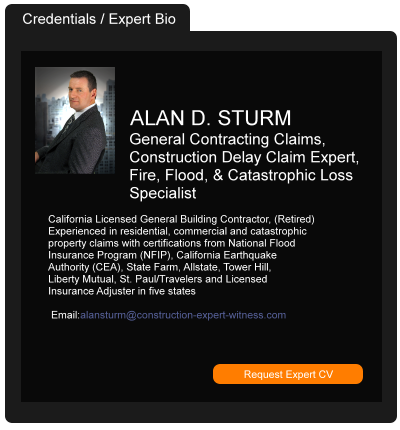A Court-Side Seat: As SCOTUS Decides Another Regulatory “Takings” Case, a Flurry of Action at EPA
July 19, 2021 —
Anthony B. Cavender - Gravel2GavelThis is a brief account of some of the important environmental and administrative law cases recently decided.
THE U.S. SUPREME COURT
Pakdel v. City and County of San Francisco
On June 28, 2021, the Supreme Court decided this regulatory “takings” case, and, in a Per Curium opinion, reversed the Ninth Circuit’s ruling that that petitioners had to exhaust their state administrative remedies before they could file this lawsuit under 42 USC Section 1983. The City government had already come to a sufficient regulatory conclusion, and the Constitution does not require additional processing. In so ruling, the Ninth Circuit ignored last term’s decision in Knick v. Township of Scott.
Read the court decisionRead the full story...Reprinted courtesy of
Anthony B. Cavender, PillsburyMr. Cavender may be contacted at
anthony.cavender@pillsburylaw.com
Daiwa House to Invest 150 Billion Yen in U.S. Rental Housing
March 07, 2014 —
Kathleen Chu – BloombergDaiwa House Industry Co. (1925), Japan’s biggest homebuilder by market value, plans to invest 150 billion yen ($1.48 billion) in U.S. rental housing, three times more than it had aimed to allocate to overseas investments, to boost revenue.
Daiwa House will acquire and develop leasing properties in Texas and allocate the funds over the next three years, the Osaka-based company said in an e-mailed statement today. The homebuilder targets 50 billion yen of revenue in the U.S. by the year ending March 2019, it said.
Japan’s shrinking population has prompted the country’s homebuilders such as Daiwa House to seek new revenue sources. Texas is the most that Daiwa House is investing overseas for rental housing and compares with the 50 billion yen the company had announced for investments abroad in its mid-term plan in November.
Read the court decisionRead the full story...Reprinted courtesy of
Kathleen Chu, BloombergMs. Chu may be contacted at
kchu2@bloomberg.net
Construction Leads World Trade Center Area Vulnerable to Flooding
February 07, 2013 —
CDJ STAFFThe Port Authority of New York and New Jersey and outside experts are looking at ways to make the World Trade Center area less vulnerable to flooding, both as construction continues and after it has concluded. Much of the site is built on landfill and the Hudson River is held back by retaining walls.
Hurricane Sandy caused $2 billion of damage to sites managed by the Port Authority, including $800 million for the PATH train system. Construction and increased vulnerability to flooding is likely to continue for at least eight more years.
Read the court decisionRead the full story...Reprinted courtesy of
Jury Trials and Mediation in Philadelphia County: Virtually in Person
July 27, 2020 —
Andrew F. Susko, Robert G. Devine & Daniel J. Ferhat - White and Williams LLPWhen will the trial court in Philadelphia County be open for jury trials in civil actions? While a precise prediction, given the current state of our trial courts in the middle of the COVID-19 pandemic, is difficult to make, what is known is that the use of virtual technology is likely permanently changing the landscape of civil litigation, including depositions, mediation, and other forms of alternative dispute resolution. Even civil jury trials, at least in the near term and during the pandemic, are being conducted virtually, either by private agreement, or through the courts, as is occurring in Texas and most recently in Florida with its pilot virtual trial program in five of its trial courts. While it is necessary at present for the parties to consent to a virtual trial, courts may ultimately compel the parties’ participation. Regardless, litigants and their counsel are well advised to understand the complexities and manner of a virtual trial.
Seasoned trial attorneys have long experienced and are comfortable with virtual depositions bringing distant counsel, parties and witnesses together through technology to present testimony. The use of virtual technology as a means for court arguments and hearings, mediation, and alternative dispute resolution, while novel and emerging as the new normal, is territory where a comfort level can be achieved. And while distinctions most assuredly exist, recent experience has demonstrated that court arguments, mediations and depositions can be conducted effectively remotely and virtually. Legal issues certainly do remain in the context of the deposition of parties to a civil action regarding whether a lawyer’s physical presence in the same room with a party-witness can be demanded, and whether courts would compel a virtual deposition during the COVID-19 pandemic where such physical presence of a party and their attorney could not be achieved. Undoubtedly these issues will be resolved, likely sooner than later, given the scope of the pandemic in certain areas.
Reprinted courtesy of White and Williams LLP attorneys
Andrew F. Susko,
Robert G. Devine and
Daniel J. Ferhat
Mr. Susko may be contacted at suskoa@whiteandwilliams.com
Mr. Devine may be contacted at deviner@whiteandwilliams.com
Mr. Ferhat may be contacted at ferhatd@whiteandwilliams.com
Read the court decisionRead the full story...Reprinted courtesy of
BHA Has a Nice Swing
May 03, 2018 —
Beverley BevenFlorez-CDJ STAFFBert L. Howe & Associates, Inc., (BHA) raises thousands of dollars each year with their Sink a Putt for Charity campaign. This year, participant’s efforts on the green will help benefit three cancer fighting institutions that are dedicated to treating and eradicating children’s cancer: Hawaii’s Children’s Cancer Foundation, St. Jude Children’s Research Hospital, and Shriners Hospital for Children. As in the past, attendees can participate for free in the BHA golf challenge and win a $25 Amazon gift card, and for every successful putt made, BHA will make a $25 cash donation in the golfer’s name to be distributed equally between each worthy organization.
While at the booth, don’t forget to test out BHA’s industry leading data collection and inspection analysis systems. BHA’s data collection process includes video overviews as well as next-day viewing of inspection data via their secured BHA Client Access Portal. Discover meaningful cost improvements that translate to reduced billing while providing superior accuracy and credibility. Also learn about BHA’s expanding market presence and full range of services in Texas, Florida, and across the Southeast United States.
Attendees can also enter to win Dodger baseball tickets! Other BHA giveaways include LED flashlights, tape measures, multi-tools and stress balls.
For more information on these worthwhile charities or to make a donation directly, please visit their websites:
Hawaii’s Children’s Cancer Foundation ,
St. Jude Children’s Research Hospital, and
Shriners Hospital for Children.
Read the full story, Bert L. Howe & Associates, Inc....
Read the court decisionRead the full story...Reprinted courtesy of
Board of Directors Guidance When Addressing Emergency Circumstances Occasioned by the COVID-19 Pandemic
May 11, 2020 —
Marc Casarino, Lori Smith & Gwenn Barney - White and Williams LLPThe COVID-19 pandemic has sent massive shockwaves throughout the global economy. This crises requires business leaders to confront a host of deleterious effects on an emergency basis – the likes of which many companies have never experienced. Boards of directors must remain cognizant of their oversight responsibilities in these trying times. This post offers guidance to directors of Delaware companies for addressing emergency circumstances occasioned by the COVID-19 pandemic.
Board Oversight – Lessons from Marchand V. Barnhill
Directors should consider the lessons learned from the recent Delaware Supreme Court case Marchand v. Barnhill, a ruling we addressed in a previous blog post, when considering board oversight during the COVID-19 pandemic. Marchand centered on a lawsuit brought by shareholders in an ice cream manufacturing company against the company’s board of directors. The shareholders claimed that the directors violated their duty of loyalty[1] to the company when they failed to provide sufficient oversight and compliance-monitoring during a listeria outbreak that led the company to recall all products, temporarily cease product production at all plants and lay off more than one-third of the company’s workforce.
Reprinted courtesy of White and Williams LLP attorneys
Marc Casarino,
Lori Smith and
Gwenn Barney
Mr. Casarino may be contacted at casarinom@whiteandwilliams.com
Ms. Smith may be contacted at smithl@whiteandwilliams.com
Ms. Barney may be contacted at Barneyg@whiteandwilliams.com
Read the court decisionRead the full story...Reprinted courtesy of
Is Ohio’s Buckeye Lake Dam Safe?
March 12, 2015 —
Beverley BevenFlorez-CDJ STAFFAccording to Columbus Business First, a report by the U.S. Army Corps of Engineers that “assessed the structural integrity of the Buckeye Lake Dam [located in Ohio] and found serious problems that present significant risks to the public.”
Problems arose, allegedly, from “construction of homes [and] pools and patios that have been built into the earthen embankment.” The U.S. Army Corps of Engineers report stated (according to Columbus Business First) “there was a potential for an eight-foot wave of water, mud and debris that would inundate an area as far as Hebron, more than two miles away.”
Read the court decisionRead the full story...Reprinted courtesy of
The Importance of the Recent Amendment to Rule 702 of the Federal Rules of Evidence
January 22, 2024 —
Andrew G. Vicknair - The Dispute ResolverEvery litigator understands that expert witnesses play a key role in litigation, especially when dealing with construction issues. Expert testimony at trial can be a deciding factor in persuading a judge or jury in your client’s favor. It is so important that, as parties get closer to trial, litigators often spend considerable time filing motions to limit or disqualify certain aspects of expert testimony in an effort to gain an advantage at trial. Because experts are a key aspect of the trial process, it is important to understand the various rules governing use of expert testimony, primarily Rule 702 of the Federal Rules of Evidence.
On December 1, 2023, amendments to Rule 702 of the Federal Rules of Evidence went into effect which added the language in underline below and removed the language which is crossed out:
Rule 702. Testimony by Expert Witness
A witness who is qualified as an expert by knowledge, skill, experience, training, or education may testify in the form of an opinion or otherwise if the proponent demonstrates to the court that it is more likely than not that:
(a) the expert’s scientific, technical, or other specialized knowledge will help the trier of fact to understand the evidence or to determine a fact in issue;
(b) the testimony is based on sufficient facts or data;
(c) the testimony is the product of reliable principles and methods; and
(d) the expert has reliably applied expert’s opinion reflects a reliable application of the principles and methods to the facts of the case.
Read the court decisionRead the full story...Reprinted courtesy of
Andrew G. Vicknair, D'Arcy Vicknair, LLCMr. Vicknair may be contacted at
agv@darcyvicknair.com


































































